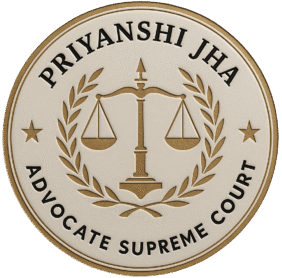
Domestic violence is one of the most reported—but also most misunderstood—legal issues in India. Many victims suffer in silence, unsure of whether they have legal protection or fearing retaliation if they speak up.
The Protection of Women from Domestic Violence Act, 2005 (PWDVA) offers a strong legal remedy for those facing violence, abuse, or emotional cruelty within a household. As a practicing lawyer representing both survivors and respondents in family court, I’ve seen how knowledge of the law can shift the power dynamic—and help people regain control of their lives.
💬 What Qualifies as Domestic Violence?
Under Section 3 of the PWDVA, domestic violence includes:
- Physical abuse: Beating, slapping, pushing, or any bodily harm
- Sexual abuse: Any non-consensual sexual conduct
- Verbal and emotional abuse: Name-calling, threats, constant humiliation
- Economic abuse: Withholding money, denying access to resources, or controlling earnings
- Dowry-related harassment or threats
And it doesn’t only apply to husbands—it applies to any male relative of the husband or partner.
👩⚖️ Who Can Seek Protection?
Any woman who:
- Is or was in a domestic relationship (marriage, live-in, family connection)
- Resides or has resided in a shared household
- Has experienced abuse (physical, mental, verbal, or financial)
She can file a complaint under the Act and request protection orders, residence rights, compensation, and child custody.
✅ Legal Remedies Available Under PWDVA
- Protection Order (Section 18)
- Restrains the abuser from committing or aiding violence
- Prohibits communication or contact
- Residence Order (Section 19)
- Secures the woman’s right to live in the shared household
- Can evict the abusive person instead
- Monetary Relief (Section 20)
- Compensation for medical bills, loss of income, emotional suffering
- Custody Orders (Section 21)
- Grants temporary custody of children
- Compensation Order (Section 22)
- Directs the abuser to pay for injuries, mental trauma, or damage caused
- Emergency Assistance
- Local Protection Officers and NGOs can assist with court filings and shelter homes
📋 Domestic Violence Survival Checklist
🧾 Immediate Steps to Protect Yourself Legally
- Record or document incidents (photos, messages, witness accounts)
- File a complaint at the nearest police station or women’s cell
- Consult a family or criminal lawyer for urgent relief
- Approach the Magistrate’s Court under PWDVA for protection or residence order
- Save emergency contacts and address of nearby shelters or NGOs
- Avoid signing any “settlement” under pressure or without legal review
👩⚖️ Advocate’s Insight
“The Domestic Violence Act is not just about punishment—it’s about protection. I’ve helped clients obtain orders in less than 24 hours when their safety was at risk. The system can work if you take that first step.”
— Advocate Priyanshi Jha
❓ Frequently Asked Questions (FAQs)
🔹 Q1: Can I file a case even after years of abuse?
A: Yes. There is no time limit to seek relief under the PWDVA if you’re still in a domestic relationship or facing continuing effects.
🔹 Q2: Will my husband be arrested immediately?
A: Not always. PWDVA is civil in nature, but may run parallel to criminal cases under IPC Sections (like 498A) if applicable.
🔹 Q3: Can I stay in the house if it’s in his name?
A: Yes. The Act provides for the right to reside in the shared household regardless of ownership.
🔹 Q4: What if I’m living in a live-in relationship?
A: You’re still protected if the relationship was in the nature of marriage.
📞 Need Legal Help With Domestic Violence or Protection Orders?
Whether you’re a survivor seeking safety or someone wrongly accused, I offer discreet, strategic legal counsel for domestic violence and family law cases.

